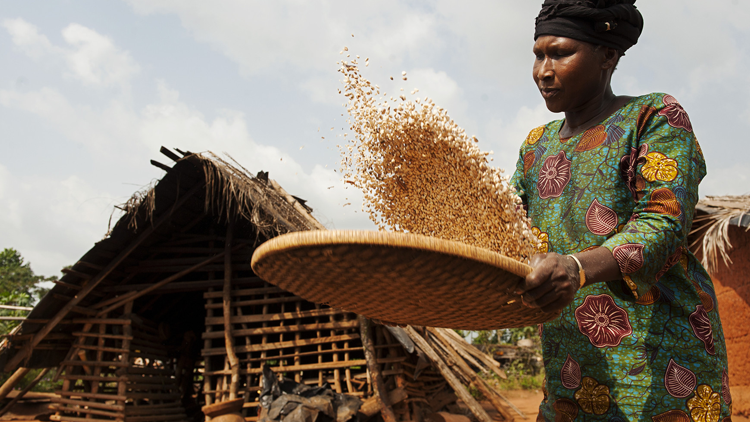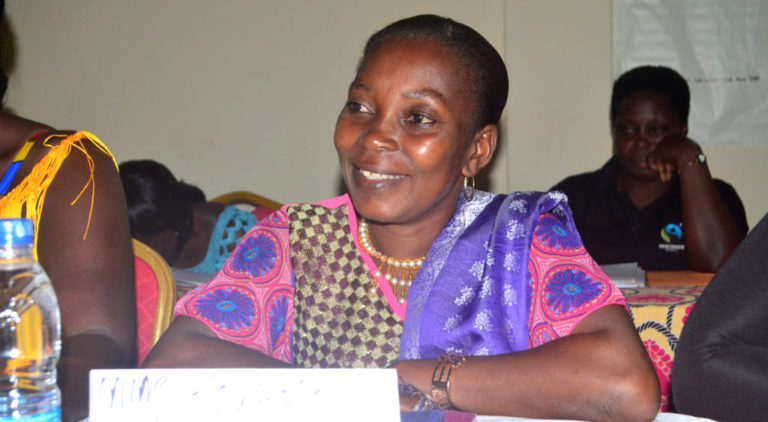Try as you might, you can’t really escape from Brexit at the moment. And so here is a blog to add to your woes!
Fairtrade supporters know that we have been keen followers of the Brexit process. Our trading relationship with the EU and with the rest of the world is at stake, and so whilst the debate can often feel quite distant from our everyday lives, decisions that government and parliament make over the coming weeks and months, will have a real impact.
Unfortunately no one has really been talking about the impact on developing country farmers and producers. Debates have touched on UK jobs, consequences for EU citizens living in the UK, and the potential implications of Brexit for peace on the island of Ireland. All of these things matter hugely. But we also want to make sure that the people who produce much of the food that we eat are not forgotten. Trade with developing countries is sometimes discussed as an alternative to trade with the EU. But in reality, whether we’re talking about flowers, coffee or chocolate, things are much more intertwined.
Earlier this year we published a briefing which outlines some of the risks of a ‘no-deal’ Brexit (pdf) which include:
- A depreciation in Sterling which could hit Fairtrade companies and producers hard. Traidcraft have estimated that after the 2016 referendum, the fall in the pound cost the business around £350,000.
- Market access in key sectors like flowers or chocolate may be lost as governments miss deadlines for ‘rolling over’ existing EU deals.
- Trade in fresh produce like bananas and flowers may be disrupted by additional administration and checks at ports. The increased cost of trade could be passed down to producers.
- Pressure for unilateral tariff reduction in a no-deal scenario could undermine the preferential market access that many developing countries receive through schemes like ‘Everything But Arms’ (EBA) which grants duty-free, quota-free access to the Least Developed Countries (LDCs).
- Pressure to reduce environmental and labour standards could undermine global efforts to reach the Sustainable Development Goals (SDGs).
We continue to urge all involved in the political decision-making to avoid this scenario which could disrupt so many people’s lives and livelihoods, both in the UK and abroad.
With so much uncertainty about, it’s important that we prepare for all eventualities and don’t drop the ball on something like the Trade Bill, which comes back to the House of Lords for debate this week. Over 15,000 Fairtrade campaigners signed a petition over the summer, calling for a more transparent and participatory process to govern the agreement of any new trade deals.
Whilst we don’t yet know where debates on the Withdrawal Agreement will end up, the government could start negotiating new deals in April without any requirement for parliamentary debate or votes. From our perspective, this means less opportunity for MPs to ‘ask the development questions’, and more likelihood that trade deals will completely ignore the needs of developing country farmers and workers. The need for more trade democracy has been highlighted far and wide, including by the International Trade Select Committee, which published a report on the issue over Christmas.
A range of positive amendments have now been tabled in the House of Lords and it is our hope that we may see these improvements supported and agreed – through this current committee stage, and when it comes to key votes later this month. Thanks to everyone who has been with us on this journey and do look out for more ways in which you can support our campaigns – sometimes it’s very tempting to switch off the radio at mention of the dreaded ‘B’ word. But it’s important for everyone who cares about the future of trade and the future of Fairtrade, to stay engaged!
Trade Democracy Update: Our campaign for greater trade democracy took a step forward this week, with the House of Lords voting for the government to bring back full proposals on the process for agreeing future trade deals. Without these proposals, the Trade Bill won’t be able to progress to its next stage. The debate on the Bill continues for now and we await the government’s response!
read more

How much money do you need to live a decent life?
7 October, 2018

